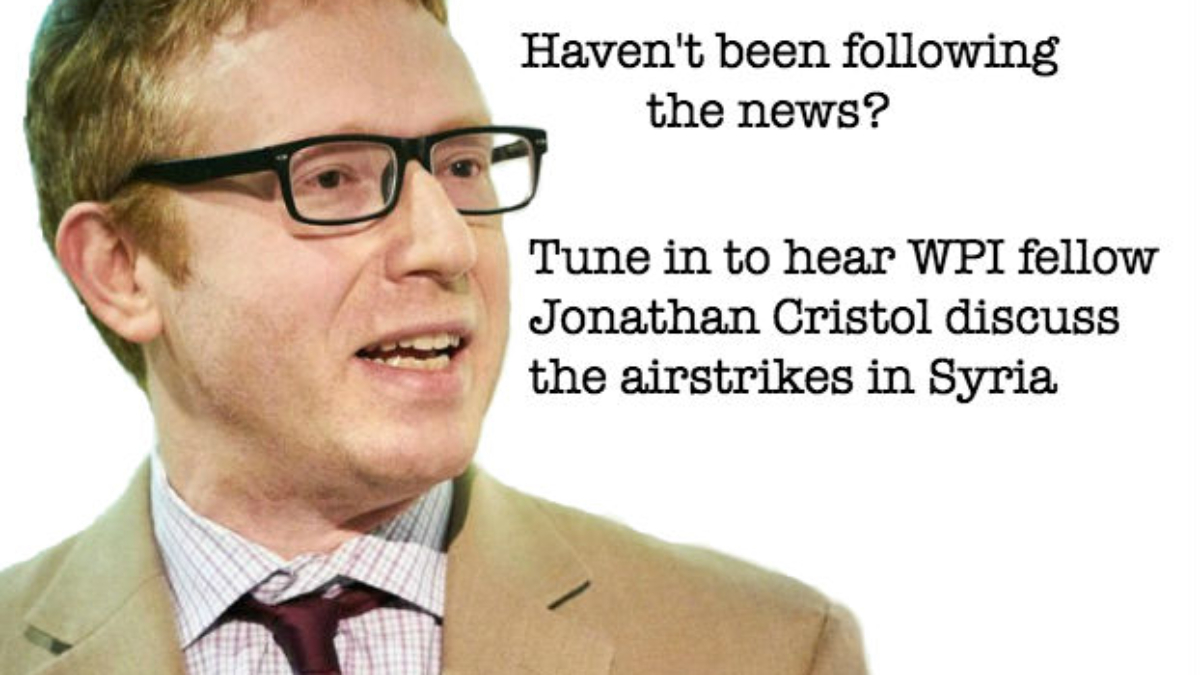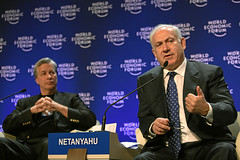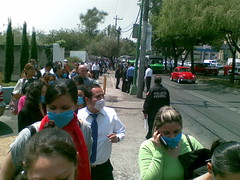Cristol argues U.S. airstrikes on Syria were the right call, but that if Assad uses chemical weapons again, the response must be more forceful
COP21 Interview: Benedito Braga
David A. Andelman, World Policy Journal’s editor emeritus, is reporting from the Paris Climate Conference. This week, he spoke with Benedito Braga, president of World Water Council, to discuss the crucial role of water in COP21's climate negotiations.
Jonathan Power:The Man Closest to Medvedev
 Talking to Igor Yurgens is probably as close to talking with Dmitri Medvedev as one can get without interviewing the Russian president himself. His influence is regarded by those who follow the inner workings of the Kremlin as immense.
Talking to Igor Yurgens is probably as close to talking with Dmitri Medvedev as one can get without interviewing the Russian president himself. His influence is regarded by those who follow the inner workings of the Kremlin as immense.
By disposition a liberal academic, committed to the rule of law, he runs his own think tank which gives him the research and intellectual firepower to influence his close friend. Yurgens had something to do with clearing the path for the president to give his first on-the-record interview to the remarkably brave and independent newspaper, Novaya Gazeta, which had four star reporters, including Anna Politkovskaya, gunned down between 2001 and 2009.
I recently interviewed Yurgens and we talked about Georgia, where the Russian army defeated Georgian forces that precipitated an unnecessary war last August by invading its neighbor, the pro-Russian mini-state of South Ossetia.
I’ve long maintained that although Russia was acting within its rights in repulsing the unprovoked Georgian attack, it used a sledge hammer to kill a wasp. The Russian military used tactics that not only overwhelmed the Georgian army but created extensive destruction and civilian suffering. They seemed to be unnecessarily brutal.
“Yes, maybe the Russian reaction was too heavy,” replied Yurgens. “And there was no attempt at public relations before the event to explain what and why the Russians were doing. But then we always make the mistake of being too heavy handed. But if Medvedev hadn’t given the order to intervene—and remember the military had worked themselves up—Medvedev would have been a lame duck president for the rest of his term.”
Within a couple of days of the invasions, Yurgens rushed to Washington for back-channel talks with the U.S. State Department. He told me that he “felt deceived by [Secretary of State] Condoleezza Rice. The U.S. did know a week before the invasion, because the Russians made sure that the 800 American soldiers stationed in Georgia were not in the way in case we had to intervene. Also both American and Russian intelligence could see and follow the movement of the Georgian army. So the U.S. had the opportunity to intervene and tell the Georgians not to go ahead with their planned attack on South Ossetia.”
“But by then within the administration, opinion, including that of [President George W.] Bush and Rice, who a month before had publicly warned the Georgian leader [Mikhail] Saakashvili not to initiate a war, had shifted in [Vice President Dick] Cheney’s direction. I got this impression from Bill Burns, who I’ve known for a long time, the number two in the State Department and a very informed ex-ambassador to Moscow.”
“Cheney, in effect, undermined Bush and Rice. He knew that right-wing academics, ex-American diplomats and others, who journeyed to Georgia in the preceding weeks, had dropped hints to Saakashvili that if it came to a showdown Bush and Rice would be compelled to support the Georgians, despite their earlier warnings. Saakashvili was emboldened to do what he had long planned. He thought he could get away with it. And he thought by poking us in the eye he would strengthen his weakening position at home, where he was becoming less democratic and more ruthless by the day.”
Back home in Moscow, Yurgens says that Medvedev wants to heal the breach with both the European Union and America. Medvedev “likes” the new U.S. president, Barack Obama, who has assumed power “with new ideas,” and thinks that if “our institutions [change] then we won’t depend on the subjective,” Yurgens said.
Obama’s First 100 Days — William M. LeoGrande: Cuba
 William M. LeoGrande’s article “Engaging Cuba: A Roadmap” appeared in the winter “Dear Mr. President” issue of World Policy Journal. His grade for the new administration’s first 100 days follows this update.
William M. LeoGrande’s article “Engaging Cuba: A Roadmap” appeared in the winter “Dear Mr. President” issue of World Policy Journal. His grade for the new administration’s first 100 days follows this update.
As the Fifth Summit of the Americas approached in April, President Barack Obama faced rising pressure from Latin American leaders to make good on his campaign promise to initiate a new policy of engagement with Cuba. Just before the heads of state convened in Trinidad, the White House announced an end to restrictions on Cuban-American remittances and travel for family visits.
These moves fulfilled the explicit campaign promise Obama made in Miami on May 23, 2008, but disappointed those who hoped the president would also rollback Bush-era restrictions on educational and cultural travel for all U.S. residents. By delaying a broader liberalization of travel, Obama left people-to-people engagement more hamstrung than it was under President Bill Clinton—hardly the sort of change in Cuba policy that Obama (as candidate) led everyone to expect.
The one innovation in the president’s first sally on Cuba was licensing U.S. telecommunications companies to provide cell phone, telephone, internet, satellite radio, and television service on the island—if the Cuban government will allow it. If Cuban President Raúl Castro accepts the offer, Obama can claim a policy success for reducing the communist government’s information monopoly, thereby justifying additional increments of change.
If the Cubans refuse, Obama can point to their lack of cooperation as a reason for doing little or nothing. During his pre-summit visit to Mexico, the president called his initiative “a show of good faith,” adding that he would now look “to see whether Cuba is also ready to change. We don’t expect them to change overnight. That would be unrealistic. But we do expect that Cuba will send signals that they’re interested in liberalizing.”
Raúl Castro responded at a pre-summit meeting in Venezuela, saying, “we have let the American government know both in private and in public,” that Cuba was willing to open a dialogue on all issues.
“Whenever they want to talk about them: human rights, the freedom of the press, political prisoners, everything, everything, everything they would like to talk about,” Castro said. “But on an equal footing with absolute respect for our sovereignty and for the right of the Cuban people to their self-determination.”
On the one hand, this sounded promising. Fidel Castro had always insisted that Cuba would never negotiate its internal politics with Washington, so Raúl’s explicit willingness to put human rights and democracy on the agenda seemed like a breakthrough. Secretary of State Hillary Clinton hailed Castro’s comments as “a very welcome gesture.”
But read in context, Raúl’s remarks were not quite so encouraging. Most of his speech recited in detail the history of U.S. aggression against Cuba. He ended with the proposal Cuba would free “the so-called dissidents and patriots” who were “on the U.S. payroll,” in exchange for release of the five “heroes”—five Cuban intelligence agents serving long sentences in federal prison. Fidel weighed in on April 22, in one of his written reflections, that Obama had “without a doubt misinterpreted Raúl’s statements,” implying that while Cuba might be willing to talk about a broad agenda, the government was still unwilling to concede anything on its domestic politics.
Obama’s Cuba initiative created a great media stir in the United States, with headlines proclaiming a fundamental change in Cuba policy when, in fact, the actual change was quite modest. The Obama team seemed to think their Cuba initiative would take the heat off the president at the Summit. They were wrong.
Heads of state across the region pointedly insisted that a new approach to Latin America ought to begin with an end to the embargo against Cuba, while Obama reiterated his commitment to “a new beginning” of engaging with Cuba “on a wide range of issues.” But even he seemed to recognize that the rest of the hemisphere didn’t regard merely liberalizing Cuban-American travel and remittances as much of a change.
Obama now faces a dilemma. The media hype surrounding the summit raised expectations that Obama will really break with the past and bring U.S. policy toward Cuba into the twenty-first century. Yet Obama keeps insisting that Cuba must make domestic political concessions—the issues on which the government is least likely to budge. The reverse is also true: Cuba offers to free political prisoners, but only if Washington releases the Cuban Five—the issue on which Obama is least likely to budge.
Washington and Havana are at risk of hitting an impasse before they even get started.
The limits to what is possible will not be known for certain until the two sides begin to talk directly and privately. Presumably, the next step is to open a dialogue, most likely at a relatively low diplomatic level, on the issues Obama himself mentioned at the close of the summit—migration, drug trafficking, and political issues. Progress on issues of mutual interest could come quickly thus building momentum for engaging tougher ones. But “we’re not going to change that policy overnight,” Obama said, trying to dampen expectations at the summit.
The Obama team appears to have decided to proceed cautiously on Cuba, taking small incremental steps, then pausing to take the political temperature at home while gauging Cuba’s response. Some progress can be made in this fashion and, to be fair, some already has been made. But such gradualism is hardly a new strategy; Presidents Jimmy Carter and Bill Clinton both tried it and neither could sustain the early momentum.
More importantly, Obama promised a fundamentally different approach toward Cuba—a policy of engagement rather than isolation and hostility. “We’ve been engaged in a failed policy with Cuba for the last 50 years,” Obama declared during the presidential campaign. “And we need to change it.”
So far, Obama has not lived up to his own rhetoric. He has yet to make a dramatic break with the policies of the past. In fact, his approach thus far has been less open than that of either Carter or Clinton. Bold in so many other areas of domestic and foreign policy, President Obama is in danger of getting stuck in the tangled morass of U.S.-Cuba relations. Ten presidents before him have tried in vain to untie this Gordian knot. Will Obama have the courage to just cut it?
For his first 100 days, he deserves a grade of…
The Index — April 30, 2009
Once again, Sri Lankan President Mahinda Rajapaksa ruled out a ceasefire with the Tamil Tigers (LTTE) i




